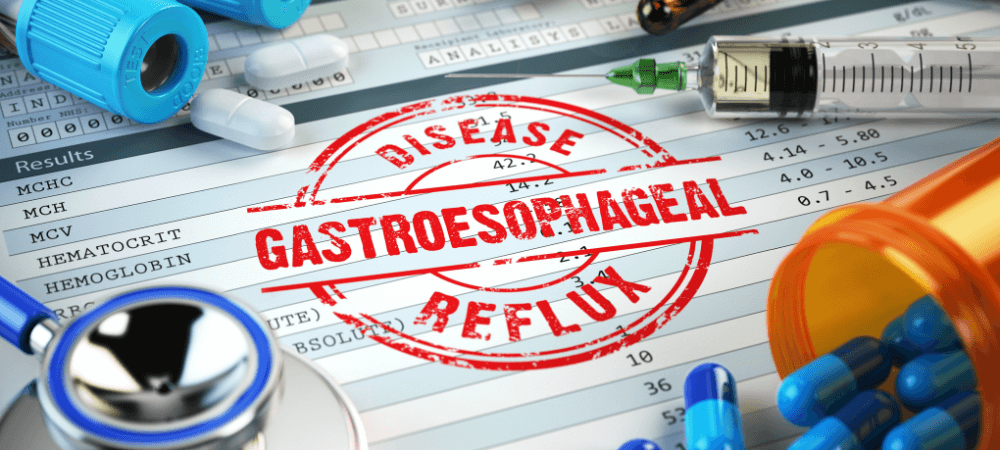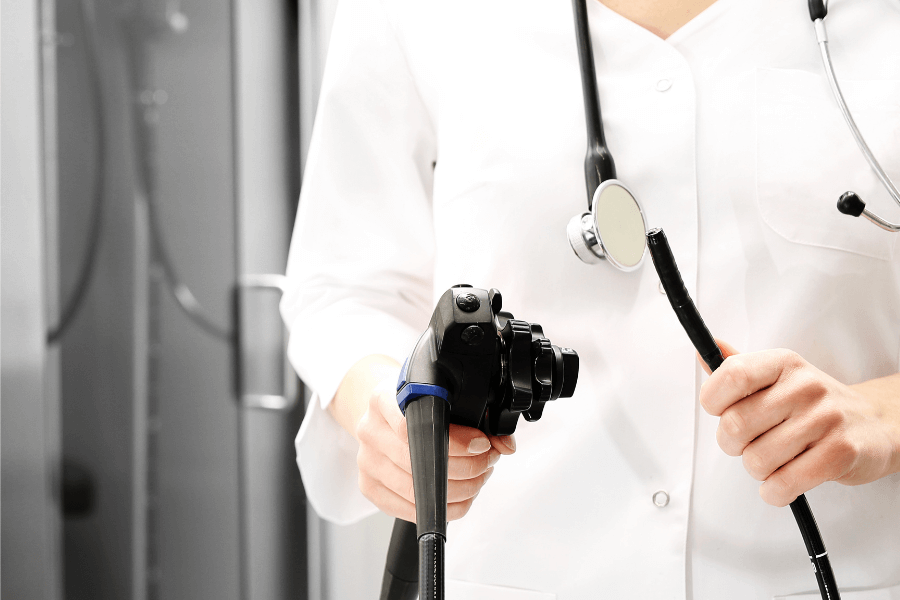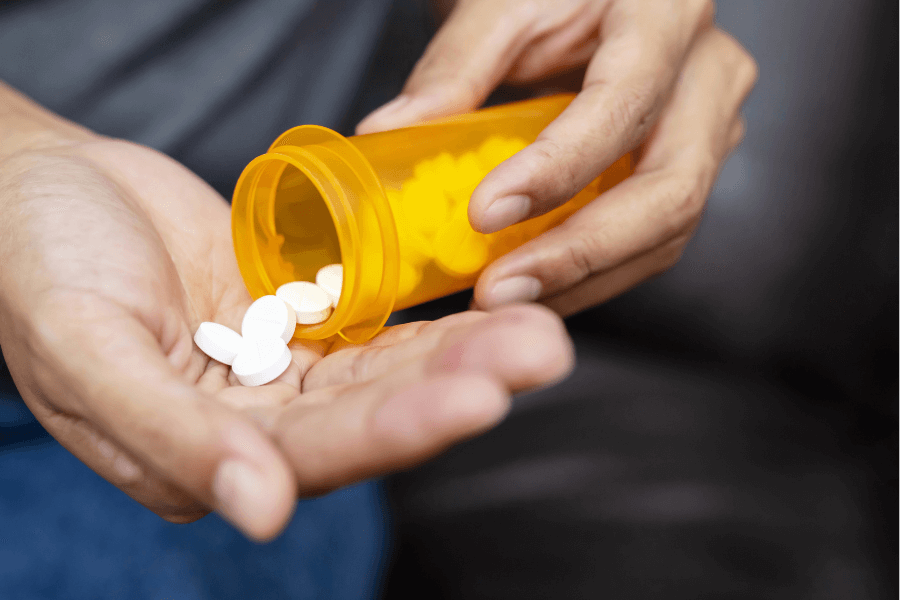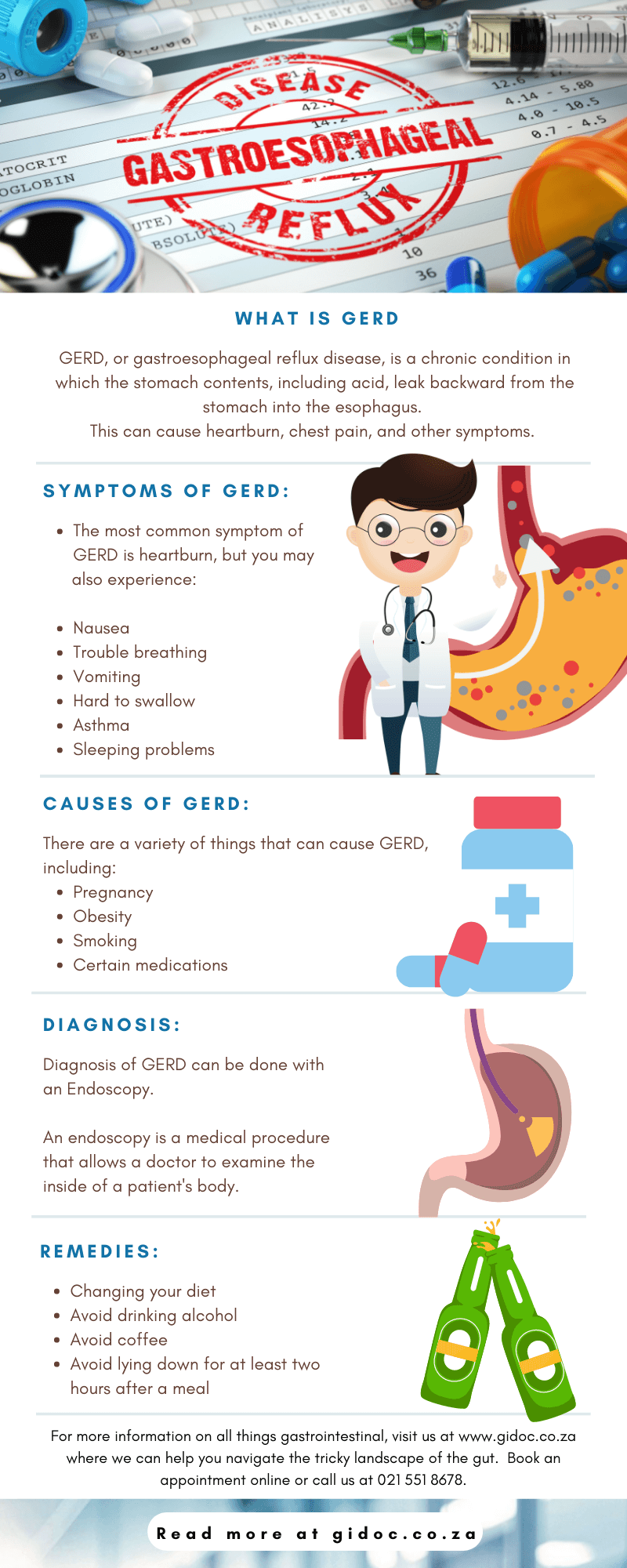What Is GERD?
GERD, or gastroesophageal reflux disease, is a chronic condition in which the stomach contents, including acid, leak backward from the stomach into the esophagus.
This can cause heartburn, chest pain, and other symptoms.
While most people experience occasional heartburn, also known as acid reflux, some people suffer from chronic GERD.
This can lead to serious problems including erosive esophagitis, or inflammation of the esophagus.
GERD is thought to be caused by a combination of factors, including a weakened lower esophageal sphincter, or LES. The LES is a ring of muscle that separates the esophagus from the stomach.
This article will explain Gerd and acid reflux in detail, covering the symptoms and causes of GERD and how to prevent flare-ups.
The Symptoms Of GERD
The most common symptom of GERD is heartburn (acid indigestion).
It usually feels like a burning chest pain that starts behind your breastbone and moves upward to your neck and throat.
Many people say it feels like food coming back into the mouth, leaving an acid or bitter taste.
Acid reflux is a common condition that occurs when stomach acid flows back up into the esophagus. This can cause heartburn, chest pain, and other symptoms.
GERD is a more serious form of acid reflux. It can cause damage to the esophagus and other problems.
Symptoms of GERD include heartburn, chest pain and regurgitation.
GERD can be treated with lifestyle changes, such as eating smaller meals and avoiding fatty and spicy foods. Medications can also be used to treat GERD.
Besides pain, you may also experience:
- Nausea
- Bad Breath
- Trouble Breathing
- Vomiting
- Wearing away tooth enamel
- Hard to swallow
- Sleeping problems
- Asthma
If you have these symptoms, it is advisable that you should see a doctor.
What Causes GERD?
GERD, or gastroesophageal reflux disease, is a condition in which the contents of the stomach come back up into the esophagus, causing a burning sensation in the chest or throat.
This can happen when the muscles that normally keep the contents of the stomach in place relax or weaken.
There are a variety of things that can cause GERD, including:
- Pregnancy
- Obesity
- Smoking
- Certain medications
Some people may have a genetic predisposition to the condition.
Diagnosis
Your doctor may diagnose GERD based on your symptoms and a physical exam.
They may also use tests to confirm the diagnosis. One test is the barium swallow.
You drink a chalky liquid that coats your esophagus. This makes it possible to see any changes or abnormalities in the lining of your esophagus on the X-ray.
Another way for diagnosis of GERD to be done is with an Endoscopy.
An endoscopy is a medical procedure that allows a doctor to examine the inside of a patient’s body.
An endoscope, which is a long, thin tube with a camera at the end, is inserted into the body through a natural opening, such as the mouth or anus.
This allows the doctor to see the inside of the body and look for any abnormalities.
Foods That Trigger GERD
There are certain foods that are more likely to trigger GERD, and it is important to be aware of them.
Common offenders include:
- Fatty foods
- Spicy food
- Fried foods
- Citrus fruits
- Tomatoes
- Chocolate
- Peppermint
While you may not be able to completely avoid these foods, it is important to eat them in moderation and to be aware of how they affect your body.
How to Treat GERD
If you suffer from GERD or acid reflux, you’re not alone. In fact, over 60 million Americans experience this condition on a daily basis.
And while there are a number of over-the-counter medications available to treat the symptoms, there are also some natural remedies that can be just as effective.
One of the best things you can do to prevent GERD or acid reflux is to avoid trigger foods.
If you’re not sure what your trigger foods are, try keeping a food diary to pinpoint them.
In addition to avoiding trigger foods, there are a few other lifestyle changes you can make to help reduce your risk of heartburn and reflux.
Lifestyle changes you could implement:
- Changing your diet
- Avoid drinking alcohol
- Avoid coffee
- Avoid lying down for at least two hours after a meal
- Keep your head elevated while you sleep
- Eat smaller and more frequent meals instead of large meals
- Eat slowly
- Stop Smoking
- Avoid food and beverages that trigger your symptoms
- Manage your weight
GERD Medications
GERD and acid reflux can be painful and annoying.
Thankfully, there are medications that can help.
There are a variety of GERD medications available over the counter or by prescription.
Antacids are the most common type of GERD medication. They work by neutralizing stomach acid. H2 blockers are another common type of GERD medication.
They work by reducing the amount of acid your stomach produces.
Home Remedies For GERD
If you suffer from Gastroesophageal Reflux Disease, or GERD, you know how painful and frustrating it can be.
Thankfully, there are a number of home remedies that can help ease the symptoms of GERD and help you get some much-needed relief.
One simple home remedy for GERD is to drink a glass of water with a tablespoon of apple cider vinegar mixed in.
This can help to neutralize the stomach acid that is causing your symptoms.
Another home remedy that can be helpful is to chew on a piece of ginger root.
This can help to calm the stomach and ease nausea.
If you find that your symptoms are still not improving, you may want to speak to your doctor about prescribing something to ease your symptoms.
Managing GERD Flare-ups
If you suffer from Gastroesophageal Reflux Disease, or GERD, you know how miserable a flare up can be.
The good news is that there are some things you can do to manage your flare ups and get relief.
First, try to identify your triggers. Common triggers include certain foods, lying down after eating, and wearing tight clothing.
Once you know what triggers your symptoms, you can try to avoid them.
If you do have a flare up, over-the-counter antacids can help to neutralize stomach acid and provide relief.
If your symptoms are more severe, you may need prescription medication. Be sure to talk to your doctor about your options.
When To See a Doctor
It’s important to remember that GERD and acid reflux are not the same condition.
GERD is a serious, chronic form of acid reflux that can lead to potentially fatal complications, while acid reflux is a common, relatively minor condition that usually goes away on its own.
If you think you may have GERD, talk to your doctor to get a diagnosis and treatment plan.
In the meantime, there are things you can do at home to ease your symptoms.
Although these remedies and guidelines might alleviate the pain, it is recommended to get a professional diagnosis from your doctor or gastroenterologist in order to discuss the way forward.
Dr Eduan prides himself on his ability to help his patients to the best of his ability by embracing good listening skills, effective communication, compassion and knowledge and skill honed during years of private gastroenterology practice.
If you would like to book an appointment with a gastrointestinal (GI) specialist or would simply like more information on a particular GI topic, don’t hesitate to use our online booking form or call Dr. Deetlefs at 021 551 867.
DISCLAIMER: PLEASE READ CAREFULLY
The information on this website is to provide general guidance. In no way does any of the information provided reflect definitive medical advice and self-diagnoses should not be made based on information obtained online. It is important to consult a Gastroenterologist or medical doctor regarding ANY and ALL symptoms or signs including, but not limited to: abdominal pain, haemorrhoids or anal / rectal bleeding as it may a sign of a serious illness or condition. A thorough consultation and examination should ALWAYS be performed for an accurate diagnosis and treatment plan. Be sure to call a physician or call our office today and schedule a consultation.
© Dr. Eduan Deetlefs, Registered Gastroenterologist, GI Doc Cape Town
Our website information is not intended or implied to be a substitute for professional medical advice, diagnosis or treatment. Please consult a doctor about your specific condition. Only a trained physician can determine an accurate diagnosis and proper treatment.






